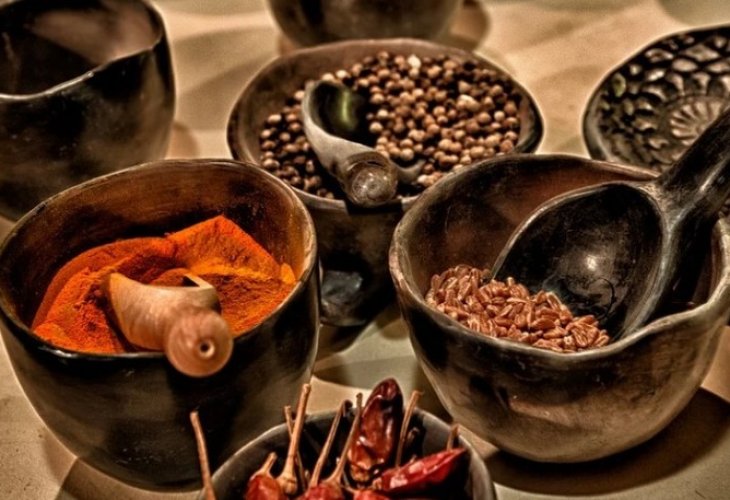You Won't Believe the Spice Used in Vietnam to Lose Weight
Why you should consume black pepper in a balanced manner daily, what researchers around the world have discovered about the spice we add to almost every dish, how to consume it correctly, and what the greatest physician of all time, Rambam, says about it.

Vietnam is the country that grows this spice the most, and now it's clear why: Studies conducted at Shizuoka University in Japan and Sejong University in Seoul found that black pepper excels in reducing fat accumulation in the body (or in simpler terms, burning calories).
Its active ingredient, piperine, regulates and suppresses the activity of fat cells, but that's not its only virtue. As a catalyst for gas absorption from the digestive system, piperine helps with various digestive problems such as diarrhea, constipation, and stomach upsets — and that's not all.
Piperine is actually a type of natural antioxidant and antibacterial agent. A study conducted at Annamalai University in India found that it helps prevent the accumulation of fat cells like phospholipids, lipids, triglycerides, and bad cholesterol. Lipids are fat molecules that the body naturally produces, contributing to various functions in our body. Black pepper increases the body's metabolic rate, thus reducing the formation of lipids through a biological process called thermogenesis — or, in other words, the heating of body cells.
When body cells heat up, metabolism speeds up, and the body burns calories faster.
Another study conducted a few years ago on lab mice tried to prove whether black pepper affects the imbalance between free radicals and antioxidants (known in medical jargon as 'oxidative stress'). The main problem with oxidative stress is the fear that free radicals will roam the body unchecked, causing damage to various cells over time due to imbalance.
The research group comprised lab mice fed a diet rich in fats and black pepper. To their surprise, researchers were able to prove that black pepper significantly reduces the activity of free radicals in the body, thus reducing the chance of oxidative stress that results from the consumption of fatty food.
What to be cautious about?
As with everything, balance is crucial here as well, and the recommendation is not to overconsume black pepper because its active ingredients can overstimulate internal organs, including the kidneys.
How best to consume it?
Pepper loses its flavor and potency when exposed to light. Light causes piperine to break down and become bland. Therefore, if you want to benefit from its use and get its strong flavor, it's best to grind the grains and store them in a dark place until use.
And what does the greatest physician of all time - Rambam - say about it?
In fact, black pepper is mentioned in the Mishnah and by Rambam many times. From its grains, we can produce two kinds of peppers that we know: black pepper and white pepper. Rambam holds that consuming large amounts of black pepper is harmful to those with skin problems, heartburn, and various eye issues. On the other hand, he also believes that black pepper aids in weight loss and solves digestive issues, particularly constipation.
One remedy he suggests for constipation resulting from an irritable stomach is drinking a solution of black pepper boiled and simmered in three cups of water with fresh ginger cut into cubes. This solution is strained and consumed when most of the water evaporates, leaving a thick solution that 'absorbs' the piperine and active ingredients of the ginger.
This solution also helps with muscle pain.
Note: This article is provided for information only and is not intended to replace consultation with your healthcare provider.

